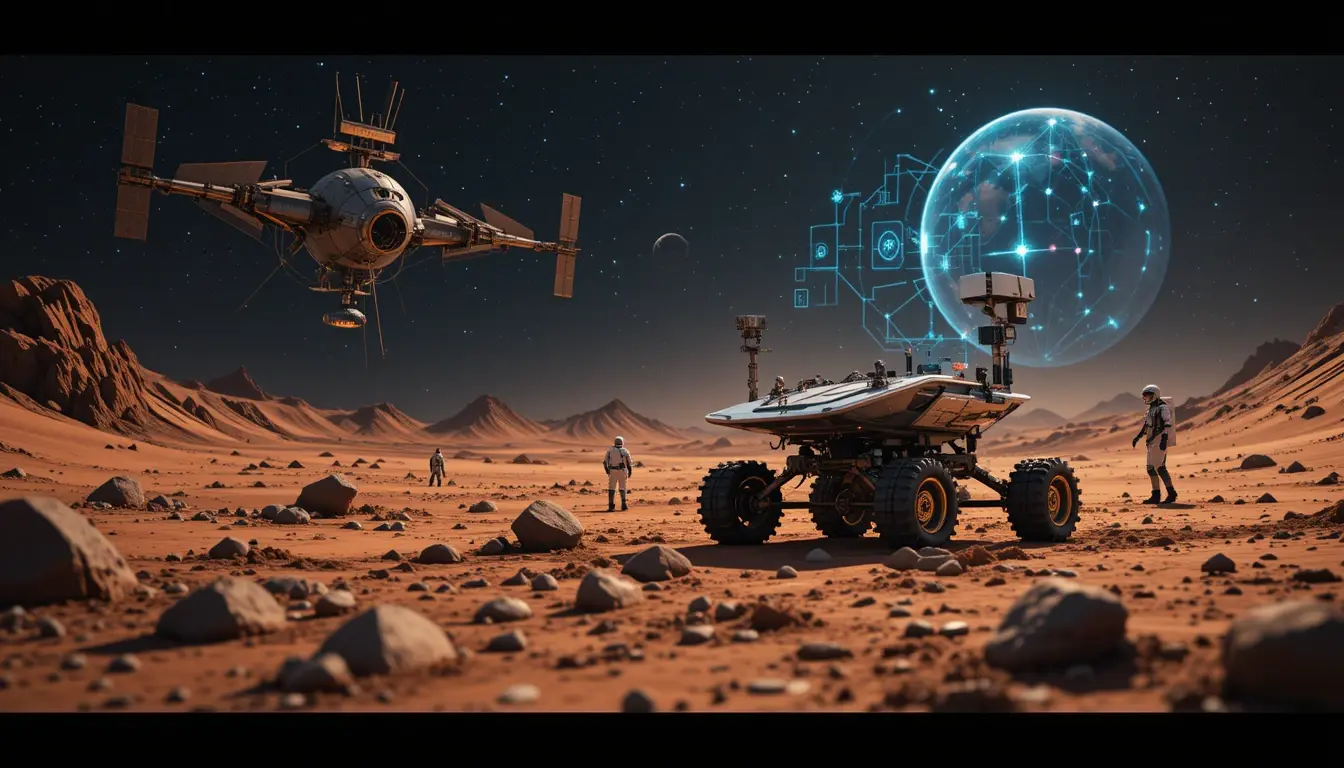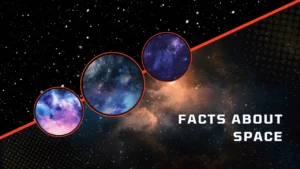AI in Space: 7 Game-Changing Ways Artificial Intelligence Is Revolutionizing Space Exploration
Introduction to AI in Space
The field of Artificial Intelligence (AI) now operates in space beyond science fiction literature and serves as actual scientific progress. The autonomous satellites and imputed robotic assistants on the International Space Station (ISS) represent how AI transforms exploration and cosmic research. In recent times, NASA, ESA, SpaceX, and other major aerospace companies have utilized AI technology to develop safer and more efficient missions.
The Rise of AI in Aerospace
The initial path of AI involvement with research began with computer data processing capabilities. The technology has progressed into serving as a vital instrument that aids mission command operations while enabling interplanetary missions. Through machine learning technology spacecraft have gained the ability to function with real-time decisions while disconnecting from Earth-based commands.
Why Space Agencies Are Turning to AI
Exploring space demands significant delays and unanticipated environmental conditions. AI bridges the gap by giving machines the ability to process information autonomously and make independent decisions for adaptation. Given that communications through radio signals between Earth and space require lengthy times of up to hours, autonomous operations become an absolute necessity.
Key Applications of AI in Space Missions
Autonomous Navigation
AI processing systems direct spacecraft navigation across deep space spaces using minimal human operator activity. The NASA Perseverance rover operated with an artificial intelligence system named AutoNav preventing Mars obstacles without receiving direction from Earth operators.
Data Processing and Image Recognition
The data collected by space missions exceeds thousands of terabytes in size. Present-day artificial intelligence evaluates large quantities of space data to detect radiation measurement patterns and generate terrain models and detects anomalous space objects including asteroids.
Predictive Maintenance
AI provides vital diagnosis of equipment deterioration which occurs before critical operations become necessary. The predictive capabilities enable spacecraft and satellites to maintain operational longevity as they avoid major malfunction expenses.
AI in Satellites and Probes
Earth Observation
Earth-monitoring satellites enable AI to spot wildfires and follow storms along with immediate agricultural evaluation to help agencies manage climate and disasters.
Deep Space Probes and AI Assistance
Distant outer planet missions function autonomously from Earth-based human direction because they distance themselves from human control. Thanks to AI probes can select meaningful information to gather while they process and send the most essential data, which ultimately maximizes bandwidth capabilities and operational success.
Machine Learning in Astronomy
Detecting Exoplanets
Software algorithms processing telescope data identify exoplanets which describe space planets located beyond our solar system. The tools possess the ability to discern minimal drops in stellar emissions that signal when a planet blocks the light from its star.
Studying Cosmic Phenomena
Using AI methods astronomers identify space phenomena more easily while they also categorize and simulate complex cosmic events at much higher-speed than standard procedures.
Role of AI in Manned Missions
Robotic Assistance for Astronauts
NASA’s Robonaut alongside ESA’s CIMON robotic system supports astronauts by executing maintenance duties and providing information access together with emotional support throughout extended space missions.
AI for Health Monitoring
Artificial intelligence operates as a health tracker which uses sensor data to find early signals of stress or fatigue or illness while maintaining astronaut protection in extreme conditions.
Challenges and Ethical Concerns
Data Security in Space Systems
AI systems require increased protection from cyber threats because they become progressively independent. Unlawful access attempts could result in both mission-wide data breaches and misleading information release.
Autonomy vs Human Oversight
The efficiency benefits of AI systems come with uncertainties formed by complete automation. Does software autonomy have proper boundaries when used for vital operational functions? Research scientists along with ethical experts still argue about this matter.
Real-World Examples of AI in Space
NASA’s Robonaut
The humanoid space robot currently assists ISS astronauts and offers potential value for future Mars exploration.
ESA’s AI Programs
The European Space Agency is integrating AI into satellite operations, data analysis, and autonomous rover missions.
Private Space Firms Using AI
Companies like SpaceX and Blue Origin use AI for launch operations, satellite management, and deep space exploration, pushing the boundaries of what’s possible.
The Future of AI in Space Exploration
AI-Powered Colonization Plans
Future missions to Mars and beyond will depend on AI for building habitats, managing resources, and ensuring human survival in harsh environments.
Beyond Mars—Interstellar AI
As humanity dreams of reaching stars like Proxima Centauri, could pilot spacecraft through deep , keeping missions on course across decades-long journeys.
FAQs About AI in Space
Q1: How does AI help in space exploration?
The combination of AI technology allows missions to perform better decisions while navigating and processing vast amounts of data therefore both processes become faster and more efficient.
Q2: Is AI replacing astronauts?
Not replacing—but assisting. AI handles tasks to reduce astronaut workload and increase safety.
Q3: Can AI make decisions in space?
Yes. AI systems onboard spacecraft can make real-time choices based on environmental data.
Q4: What companies use AI in space?
NASA, ESA, SpaceX, Blue Origin, and Planet Labs all use AI technologies.
Q5: Is AI used in satellites?
Absolutely. AI in satellites powers earth observation, communication, and security functions.
Q6: What is the biggest benefit of AI in space?
The greatest advantage is autonomy—AI enables systems to operate efficiently without real-time human input.
Conclusion
The implementation of artificial intelligence in space functions as the foundational technology which drives the modern age of astrophysical investigation. The capabilities of AI allow it to supervise space missions while Mars and moon exploration together with interstellar travel remain in AI’s decisive leadership position for future space missions.


